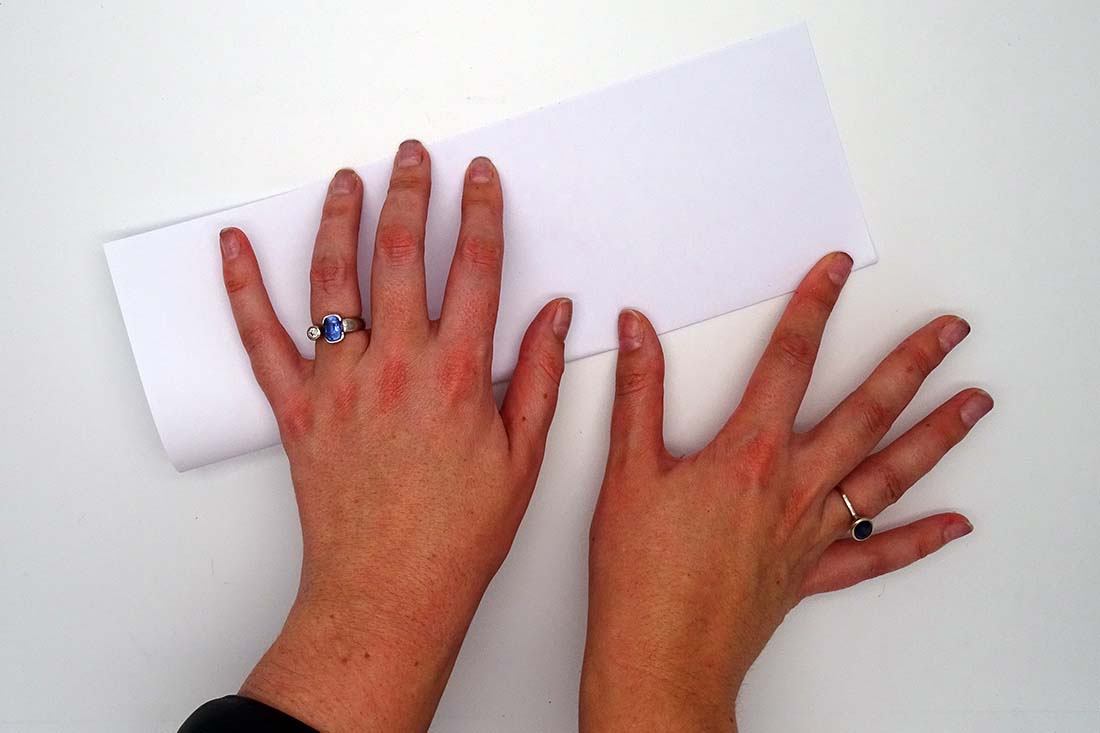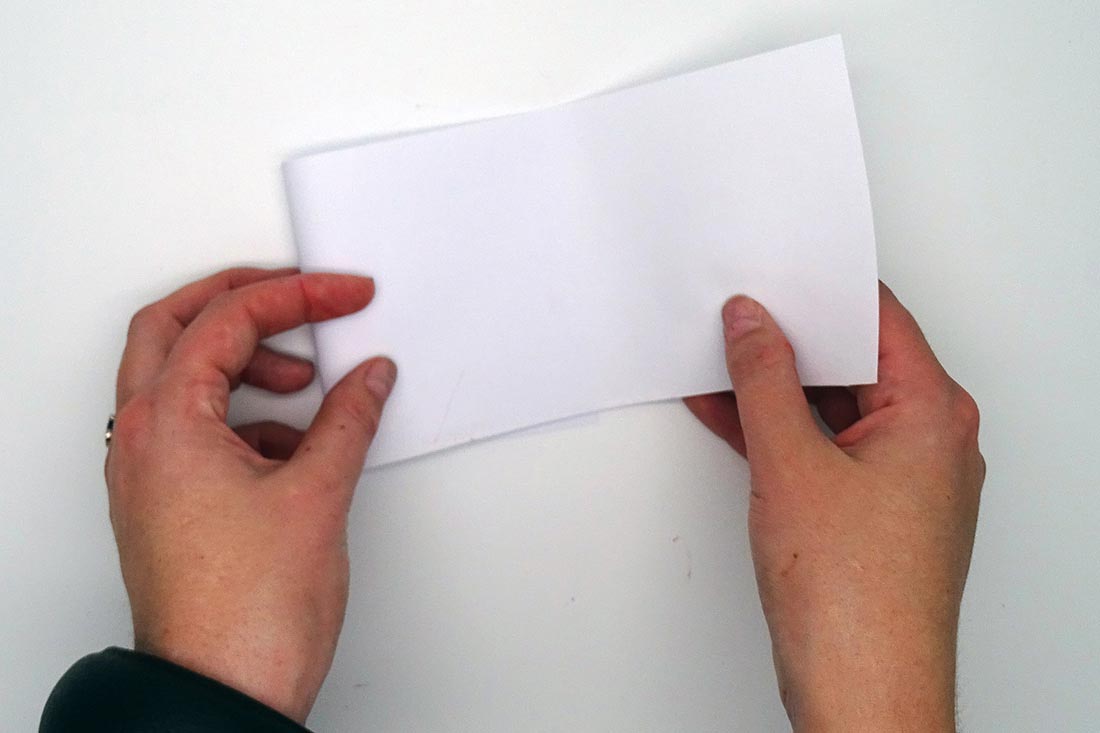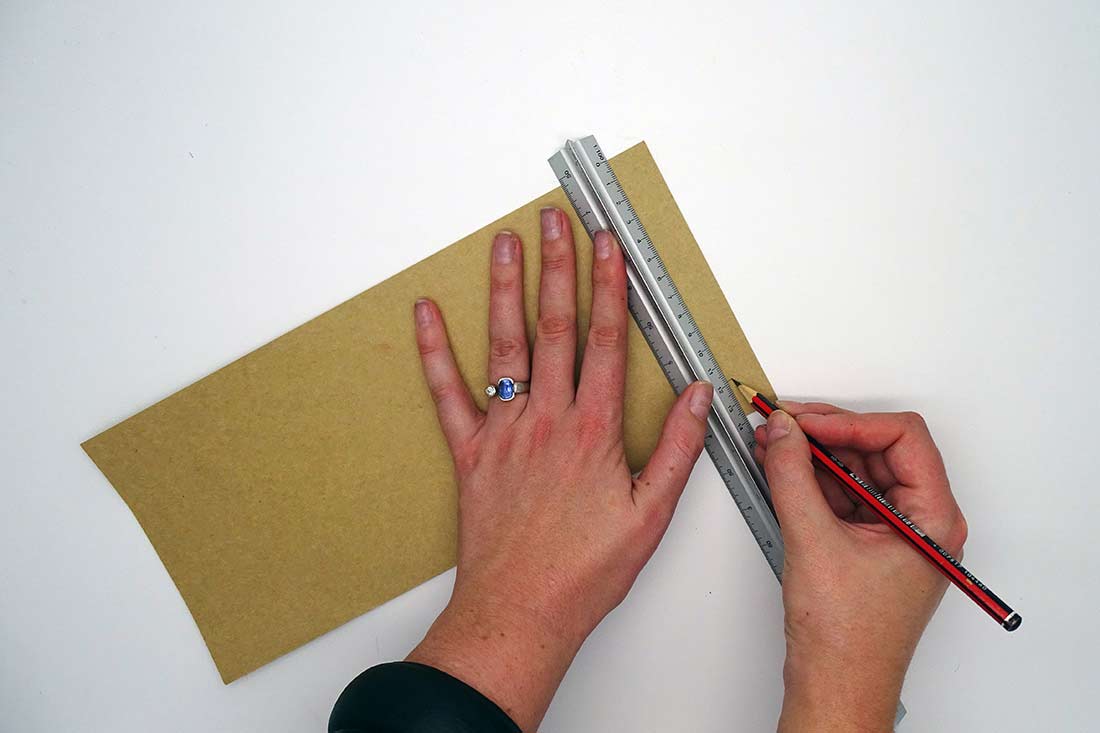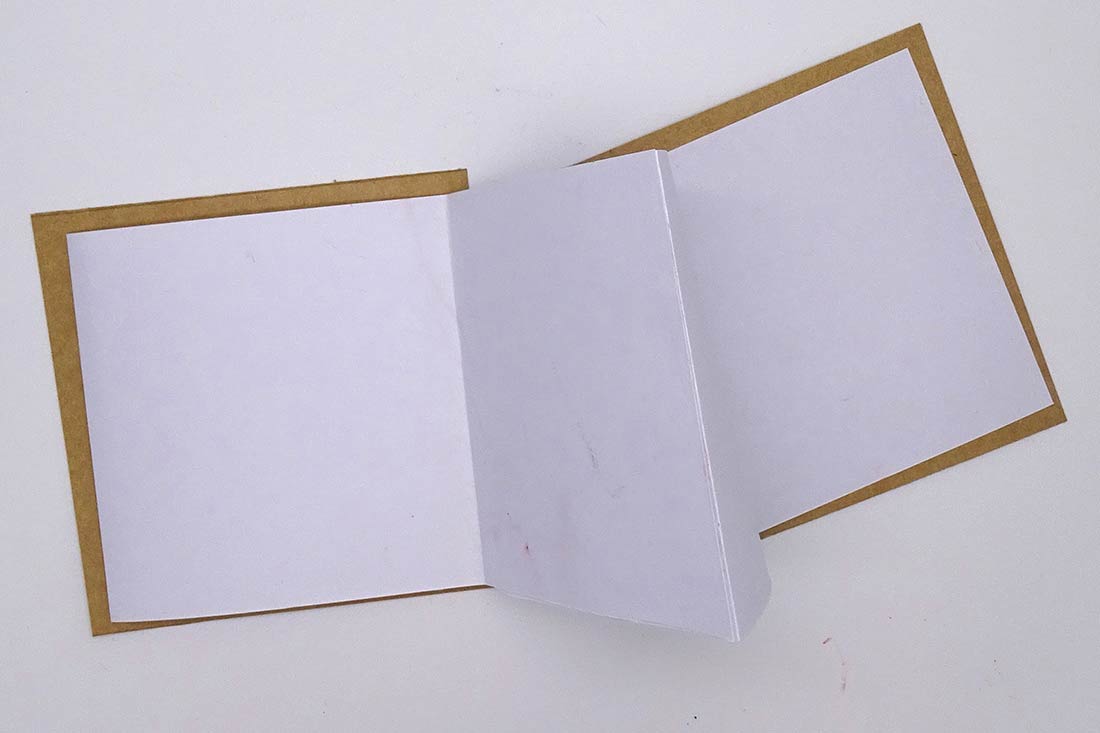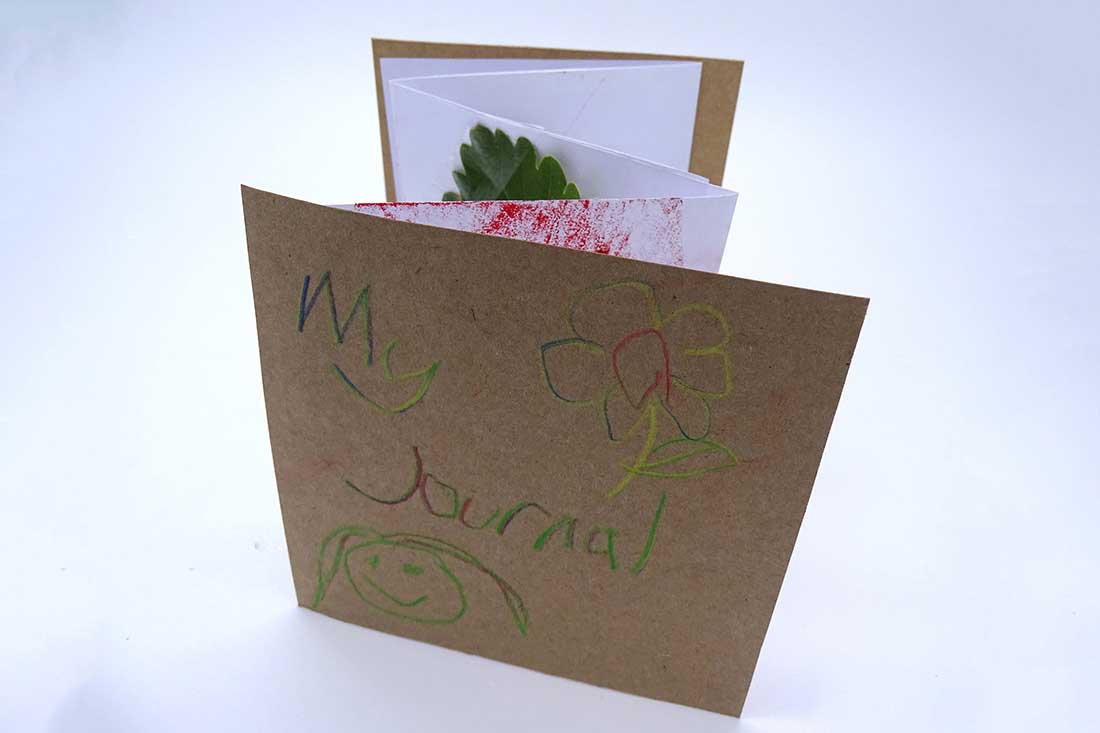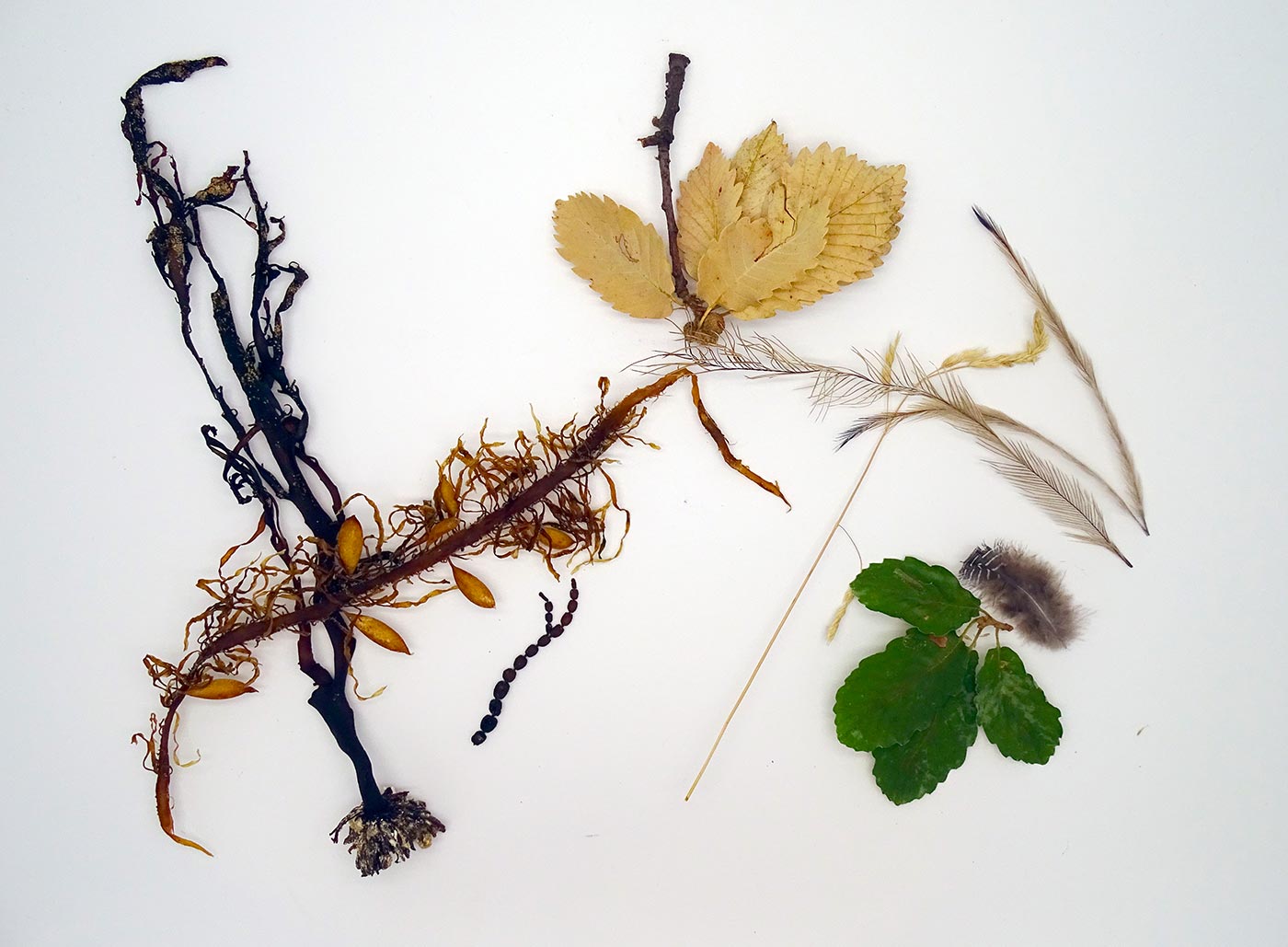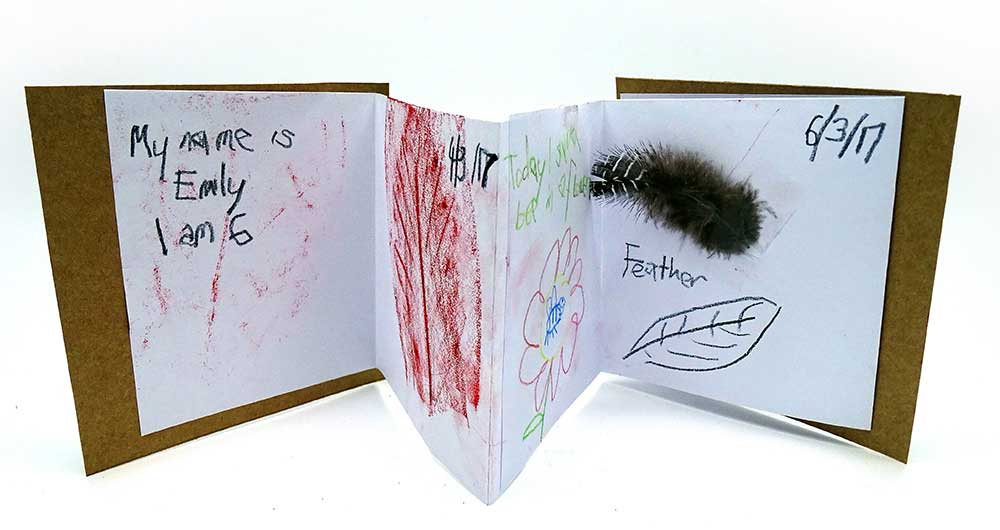Make a folding nature journal to record the world around you.
How to make a folding nature journal
Start your journey as a natural historian by checking out the National Museum of Australia’s collection of 19th-century seaweed albums from Port Phillip and Port Arthur.
Look closely at the world around you. Use a magnifying glass to examine the patterns on a leaf, feather or shells. Look in your yard, at the beach or go on a family bushwalk to collect objects from nature. Collect and glue samples into your journal, make sketches or a shading.
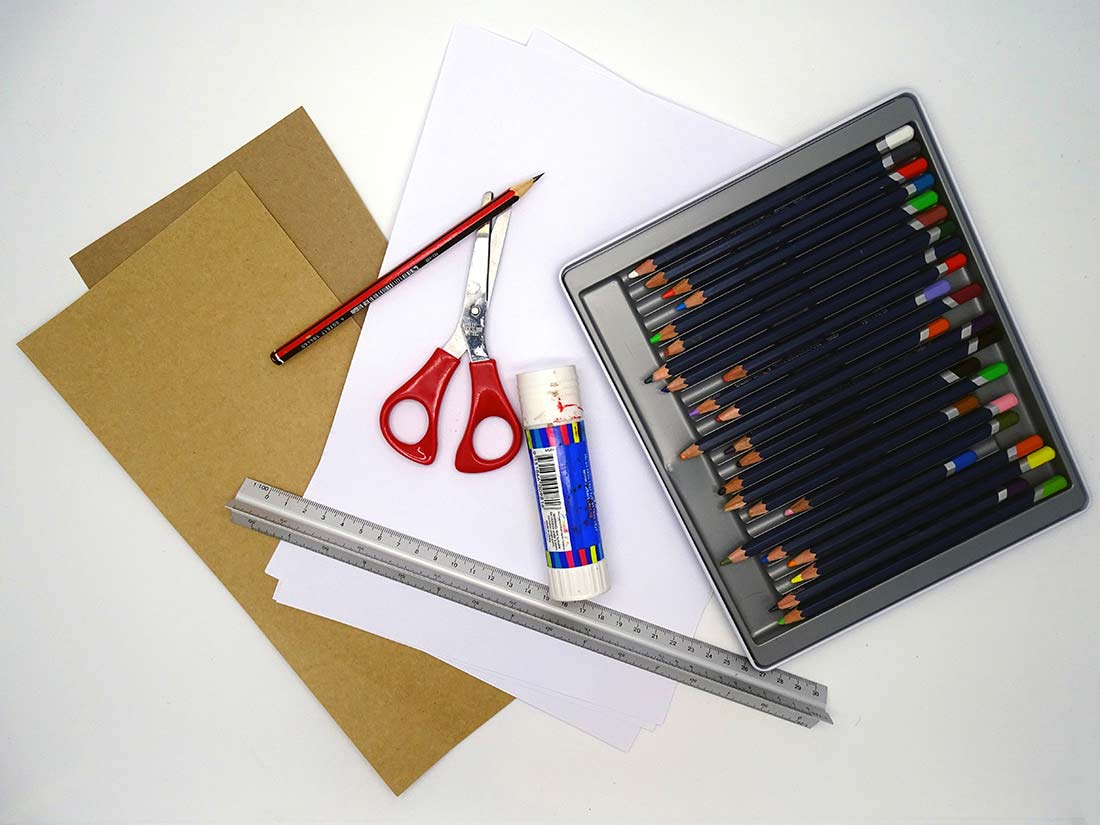
Skill level: ★ Easy – you may need an adult to help
Time: 30 minutes
What you need:
- cardboard (old boxes are great)
- A4 paper
- crayons, textas, pencils or paint
- tape and glue
- ruler
- scissors (remember, these can be sharp, so ask an adult for help).
Steps 1–2
- Gather your materials. Thick cardboard makes a stronger cover.
- We’re making a small journal, so start by folding the A4 paper in half lengthwise. Then carefully cut down the fold.
Steps 3–4
- Fold your two strips of paper into thirds. Each third should be about 10 cm by 10 cm. When you’ve finished you should have two Z-shaped folded pieces of paper.
- To create the zigzag pages for the inside of your journal, line up the edge of one piece of paper with the other and glue the edges together.
Step 5
- Using your zigzag pages as a guide, measure two pieces of cardboard for your front and back covers. These cover pieces should be 2 cm larger than your pages. Mark them up with a ruler and pencil, then cut them out with scissors.
Steps 6–7
- Now you’re ready to put your journal together. Glue the front of your folded pages into the centre of the front cover and press down firmly. Repeat on the other end and back cover.
- You’re almost done. Decorate your cover, then go outside!
Step 8
- Look around! What interesting things can you see? Do you want to draw them? Can you stick them in your journal? Fill your journal with all the interesting things you can see. Below are some interesting samples we found outside the Museum.
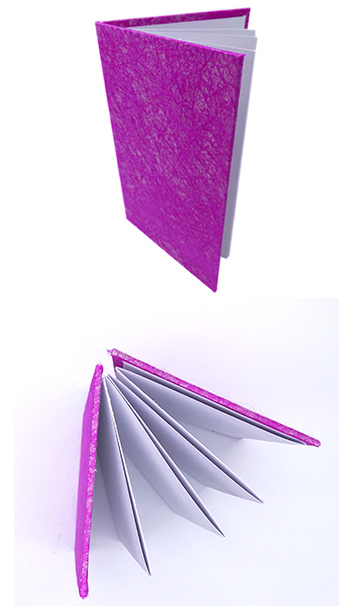
Step 9
- Don’t stop there! Once your journal’s full, make another one. We made a longer journal by folding and joining extra pages, then decorating the cover by wrapping it in coloured paper. The possibilities are endless and a handmade journal makes a wonderful gift.
Tip: One of our favourite places in Canberra to wander through different ecosystems, compare plants, sit down and draw is the Australian National Botanic Gardens. Check out your local gardens if you’re not in Canberra.
Share your creation
We’d love to see your creation by emailing us a photo to: programs@nma.gov.au
